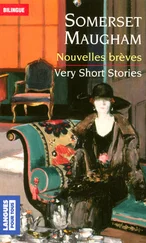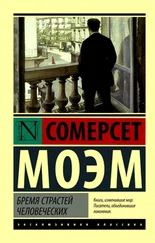| He wanted to give him the lion's share of the beefsteak, but Philip insisted that they should share alike. |
Хозяин хотел положить гостю львиную долю, но Филип настоял на том, чтобы он разделил мясо поровну. |
| It was a sunny room with two windows that reached to the floor; it had been the parlour of a house which at one time was if not fashionable at least respectable: it might have been inhabited fifty years before by a well-to-do tradesman or an officer on half pay. |
Комната была солнечная, с двумя большими окнами до пола; прежде, видно, это была гостиная дома, может, и не знатного, но, во всяком случае, приличного; лет пятьдесят назад тут, верно, жил либо зажиточный купец, либо офицер в отставке. |
| 'Erb had been a football player before he married, and there were photographs on the wall of various teams in self-conscious attitudes, with neatly plastered hair, the captain seated proudly in the middle holding a cup. |
До женитьбы Герберт играл в футбол, и на стене висели фотографии футболистов в деревянных позах, с гладко прилизанными чубами и капитаном в центре, гордо держащим кубок. |
| There were other signs of prosperity: photographs of the relations of 'Erb and his wife in Sunday clothes; on the chimney-piece an elaborate arrangement of shells stuck on a miniature rock; and on each side mugs, |
Были тут и другие признаки благосостояния: фотографии родственников Г ерберта и его жены в праздничных костюмах; на камине стояло сложное сооружение из ракушек, наклеенных на миниатюрную скалу, с пивными кружками по бокам, на которых готическими буквами было написано |
| 'A present from Southend' in Gothic letters, with pictures of a pier and a parade on them. |
"Привет из Саусэнда" и нарисованы пирс и набережная. |
| 'Erb was something of a character; he was a non-union man and expressed himself with indignation at the efforts of the union to force him to join. |
Г ерберт был парень крутой, не одобрял профсоюзов и с негодованием рассказывал, что его туда тянут силком. |
| The union wasn't no good to him, he never found no difficulty in getting work, and there was good wages for anyone as 'ad a head on his shoulders and wasn't above puttin' 'is 'and to anything as come 'is way. |
А союз ему без надобности: человек всегда заработает, если у него есть голова на плечах и он не гнушается никаким трудом. |
| Polly was timorous. |
Полли была более робкого нрава. |
| If she was 'im she'd join the union, the last time there was a strike she was expectin' 'im to be brought back in an ambulance every time he went out. |
На его месте она бы пошла в союз; последний раз, когда были стачки, она каждый день ждала, что его вот-вот притащат домой на больничных носилках. |
| She turned to Philip. |
Она попыталась найти поддержку у Филипа: |
| "He's that obstinate, there's no doing anything with 'im." |
- Ну до чего же упрям, ему хоть кол на голове теши! |
| "Well, what I say is, it's a free country, and I won't be dictated to." |
- А я говорю, у нас свободная страна; не желаю я, чтобы мне указывали! |
| "It's no good saying it's a free country," said Polly, "that won't prevent 'em bashin' your 'ead in if they get the chanst." |
- Ну уж и свободная, тоже скажешь! - возражала Полли.- Возьмут да и проломят тебе башку, дай им только случай. |
| When they had finished Philip passed his pouch over to 'Erb and they lit their pipes; then he got up, for a 'call' might be waiting for him at his rooms, and shook hands. |
Когда кончили есть, Филип протянул свой кисет Герберту и они закурили трубки; доктор встал, потому что дома его уже мог ждать новый вызов, и распрощался. |
| He saw that it had given them pleasure that he shared their meal, and they saw that he had thoroughly enjoyed it. |
Хозяева были явно рады, что он с ними пообедал, да и он не скрывал от них своего удовольствия. |
| "Well, good-bye, sir," said 'Erb, "and I 'ope we shall 'ave as nice a doctor next time the missus disgraces 'erself." |
- Что ж, прощайте, сэр,- сказал Герберт.- Надеюсь, в следующий раз, когда моя хозяйка вздумает безобразничать, к ней придет такой же славный доктор. |
| "Go on with you, 'Erb," she retorted. "'Ow d'you know there's going to be a next time?" |
- Да ну тебя, ей-богу! - возмутилась жена.- Откуда ты взял, что я еще раз на это решусь? |
| CXIV |
ГЛАВА 114 |
| The three weeks which the appointment lasted drew to an end. |
Три недели практики подошли к концу. |
| Philip had attended sixty-two cases, and he was tired out. |
За это время у Филипа было шестьдесят два вызова, и он смертельно устал. |
| When he came home about ten o'clock on his last night he hoped with all his heart that he would not be called out again. |
Вернувшись домой около десяти часов вечера, он всей душой надеялся, что напоследок его больше не потревожат. |
| He had not had a whole night's rest for ten days. |
За десять дней он ни разу не выспался. |
| The case which he had just come from was horrible. |
Больная, от которой он только что вернулся, произвела на него удручающее впечатление. |
| He had been fetched by a huge, burly man, the worse for liquor, and taken to a room in an evil-smelling court, which was filthier than any he had seen: it was a tiny attic; most of the space was taken up by a wooden bed, with a canopy of dirty red hangings, and the ceiling was so low that Philip could touch it with the tips of his fingers; with the solitary candle that afforded what light there was he went over it, frizzling up the bugs that crawled upon it. |
За ним пришел здорово выпивший рослый, грузный мужчина и привел его в комнату, выходившую на вонючий двор, где была такая грязь, какой он еще не видел; крохотная мансарда была почти вся заставлена огромной деревянной кроватью с засаленным красным пологом; потолок был такой низкий, что Филип мог достать до него рукой; взяв горевшую в комнате единственную свечу, Филип обвел ее пламенем все щели, поджаривая выползающих оттуда клопов. |
| The woman was a blowsy creature of middle age, who had had a long succession of still-born children. |
Больная - неряшливая женщина средних лет -страдала бесконечными выкидышами. |
| It was a story that Philip was not unaccustomed to: the husband had been a soldier in India; the legislation forced upon that country by the prudery of the English public had given a free run to the most distressing of all diseases; the innocent suffered. |
История была довольно обыденная: муж служил солдатом в Индии; законодательство, навязанное этой стране английским ханжеством, оставляло безнаказанной одну из самых убийственных болезней, в результате страдали невинные. |
| Yawning, Philip undressed and took a bath, then shook his clothes over the water and watched the animals that fell out wriggling. |
Зевая, Филип разделся, принял ванну, вытряхнул над водой свою одежду, наблюдая за тем, как из нее сыплются насекомые. |
| He was just going to get into bed when there was a knock at the door, and the hospital porter brought him a card. |
Он только собрался лечь в постель, как в дверь постучали и больничный привратник вручил ему талон. |
| "Curse you," said Philip. "You're the last person I wanted to see tonight. |
- Эх, черт! - сказал Филип.- Вот уж чего я сегодня больше не ждал! |
| Who's brought it?" |
Кто это принес? |

![Уильям Макгиверн - Завтра опять неизвестность [английский и русский параллельные тексты]](/books/35168/uilyam-makgivern-zavtra-opyat-neizvestnost-angli-thumb.webp)


